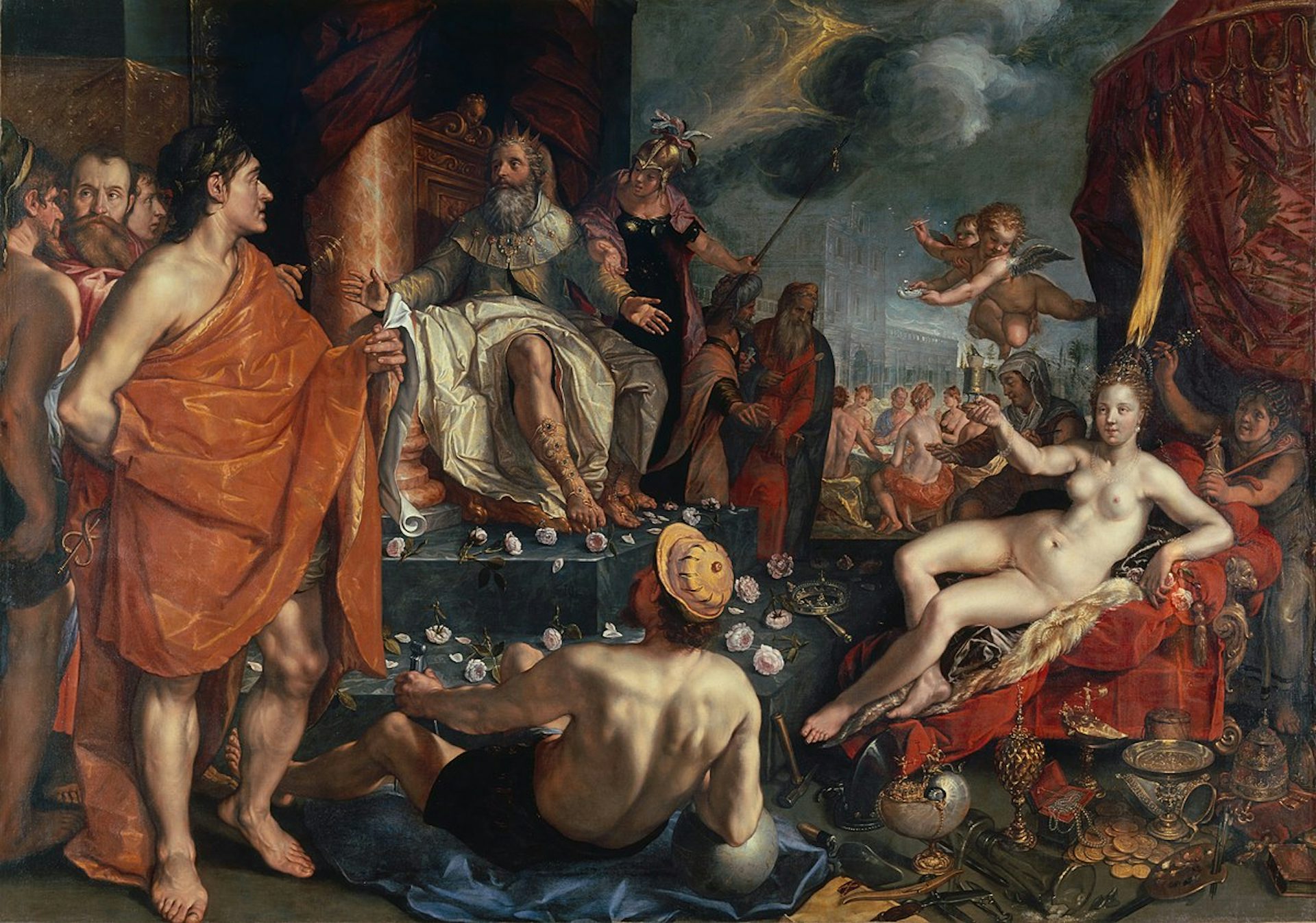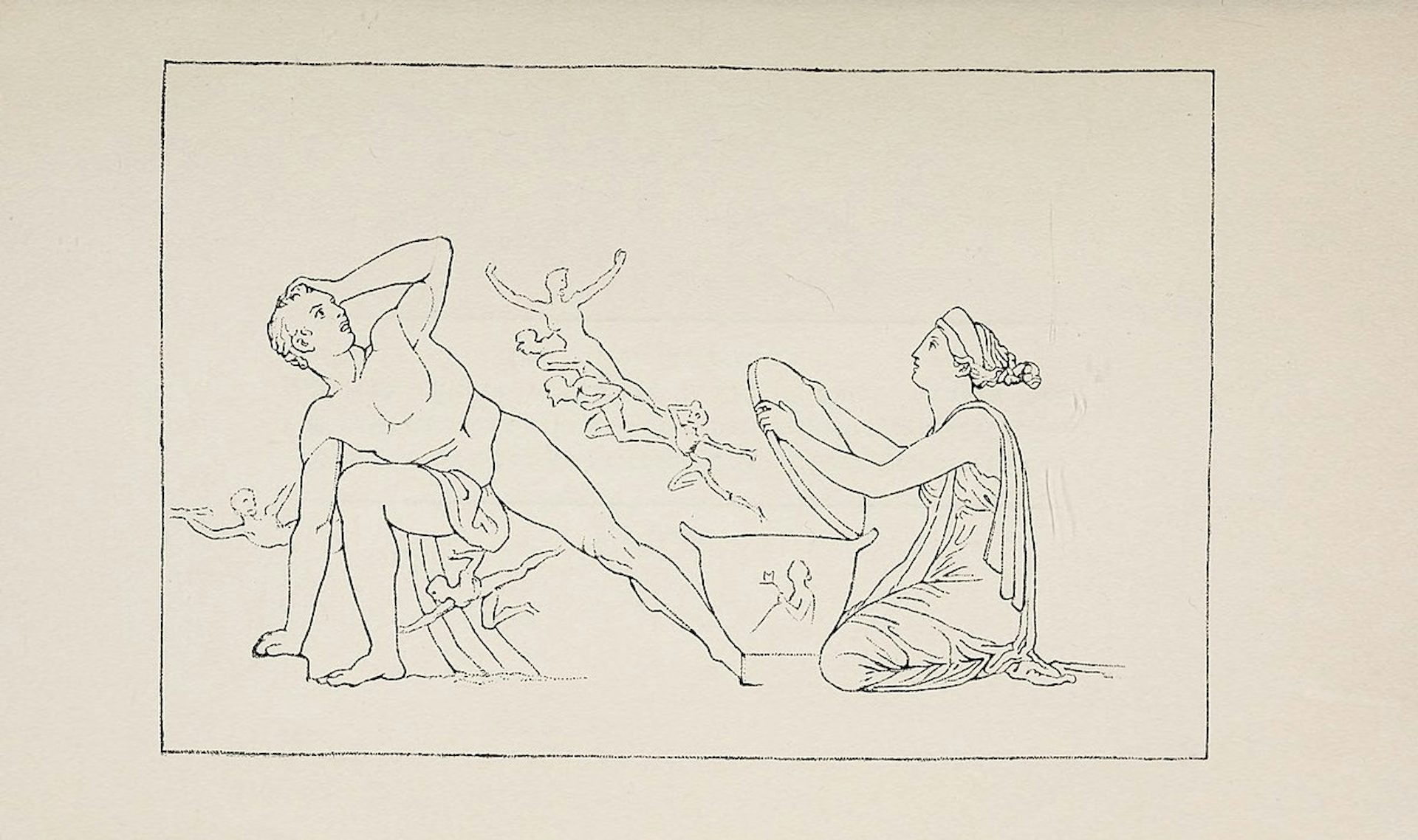Epimetheus
Overview
Epimetheus, the “after-thinker,” was a son of the Titan Iapetus and a key benefactor of the first mortals. But while his brother Prometheus was famously clever, Epimetheus was hopelessly foolish. Prometheus made human life and civilization possible by bringing fire to the humans and teaching them crafts. But Epimetheus effectively undid all of his brother’s hard work when he accepted Pandora as his bride; he inadvertently helped her open her infamous “jar” (or box), which unleashed all the evils of the cosmos upon mankind.
Some later authors further developed the myth, claiming that Epimetheus and Prometheus had actually been charged with creating mortal life. Yet Epimetheus, true to form, exhausted all the attributes that the gods had supplied when he created animals, leaving nothing for Prometheus’ human beings.
Etymology
The name “Epimetheus” (Ἐπιμηθεύς, translit. Epimētheús) seems to be made up of two elements: the Greek prefix ἐπί- (epí-), meaning “after,” and the verbal root μηθ-/μαθ- (mēth-/math-), meaning “to think” (itself derived from the Indo-Germanic root *mendh-/*men-, also meaning “to think”).[1] Epimetheus’ name can thus be translated as “afterthinking”—the opposite of his brother Prometheus, whose name means “forethinking.”
Pronunciation
English
Greek
Epimetheus Ἐπιμηθεύς (translit. Epimētheús) Phonetic
IPA
[ep-i-MEE-thee-uhs, -thyoos] /ɛp ɪ ˈmi θi əs, -θyus/
Epithets
Hesiod, the earliest author to tell the myth of Epimetheus, aptly described him as ἁμαρτίνοος (hamartínoos, “scatter-brained”).[2]
Attributes
Epimetheus’ chief attribute was his foolishness. In most stories, he serves as a foil to his cleverer brother Prometheus, with Prometheus’ “forethought” and foresight standing in sharp contrast to Epimetheus’ “afterthought” and hindsight.
Epimetheus was also associated with his wife Pandora and her infamous jar of evils. In ancient art, the couple was often depicted together.
Family
Epimetheus was the son of the Titan Iapetus and his wife, whose name was either Clymene[3] or Asia (both Oceanids).[4] His brothers were Prometheus, Menoetius, and Atlas, but also, according to some traditions, Anchiale,[5] Buphagus,[6] and Dryas.[7] Some sources, however, made Epimetheus the son of Prometheus and Clymene.[8]
Family Tree
Parents
Father
Mothers
- Asia
- Clymene
Siblings
Brothers
Sister
- Atlas
- Menoetius
- Prometheus
- Buphagus
- Dryas
- Anchiale
Consorts
Wives
- Pandora
- Ephyra
Children
Daughters
- Pyrrha
- Ephyra
- Prophasis
- Metameleia
Mythology
Origins
Though a son of the Titan Iapetus, it appears that Epimetheus, like his brother Prometheus, made the wise choice not to join the other Titans in their war against Zeus and the Olympians (possibly the only wise choice he ever made). Because of this, Epimetheus was not thrown into Tartarus with the other Titans when the Olympians won the war and took over the cosmos.
Epimetheus’ mythos was in many ways a direct response to that of Prometheus: just as Prometheus was too clever for his own good, Epimetheus was too foolish for his. Both brothers ended up getting themselves into trouble.
It all started with a battle of wits between Zeus and Prometheus. Prometheus first tricked Zeus into accepting the less desirable parts of an animal as the gods’ share of a sacrificial offering. Then, when Zeus retaliated by depriving mortals of fire, Prometheus stole it back: he hid the seeds of fire in a fennel stalk and gave it to his beloved mortals.
Zeus, in turn, punished Prometheus by having him chained to a cliff, where an eagle would devour his liver each day (since Prometheus was immortal, the organ would always grow back, only to be devoured again).[14]
But Zeus wanted to punish mortals as well, since they had benefited from Prometheus’ insubordination. Thus, he created Pandora, the first woman, who would unleash all evils upon the human race.

Hermes Presenting Pandora to King Epimetheus by Hendrik Goltzius (1611). Kuntsmuseum, Basel, Switzerland.
Wikimedia CommonsPublic DomainEpimetheus and Pandora
This is where Epimetheus came in. After Zeus and the other Olympians created Pandora and endowed her with every conceivable charm (beauty, grace, domestic skills), they gave her a fateful jar and sent her to marry Prometheus’ brother Epimetheus.
Although Epimetheus had been warned by Prometheus not to accept any gifts from Zeus, he was all too eager to marry the alluring Pandora. In the best-known tradition, Pandora then opened the jar that the gods had given her, thus releasing all evils into the world. From the jar escaped sorrow, toil, disease, and so on, which ran rampant among mortals. Only hope—elpis in Greek—remained in the jar when the lid was finally closed.[15]

Illustration by John Flaxman showing Pandora opening the jar as Epimetheus stands by (1910).
Wikimedia CommonsPublic DomainThe Creation of Humans and Animals
The earliest Greek sources on the origins of the cosmos had little to say about the creation of humans and animals. But some later traditions claimed that it was Prometheus and Epimetheus who had been tasked with creating all living things: Prometheus was responsible for crafting humans, while Epimetheus was in charge of animals.
Here again we find Prometheus’ cleverness contrasted with Epimetheus’ foolishness. According to the fourth-century BCE philosopher Plato, the gods assigned the brothers a limited number of attributes for their task. Epimetheus, however, immediately wasted almost all of these attributes—fur, claws, feathers, etc.—on animals.
When Prometheus found out what his brother had done, he realized that humanity was doomed to be helpless, “naked, and shoeless.” This was the reason, Plato argued, that Prometheus stole fire from the gods to give to humanity.[16]